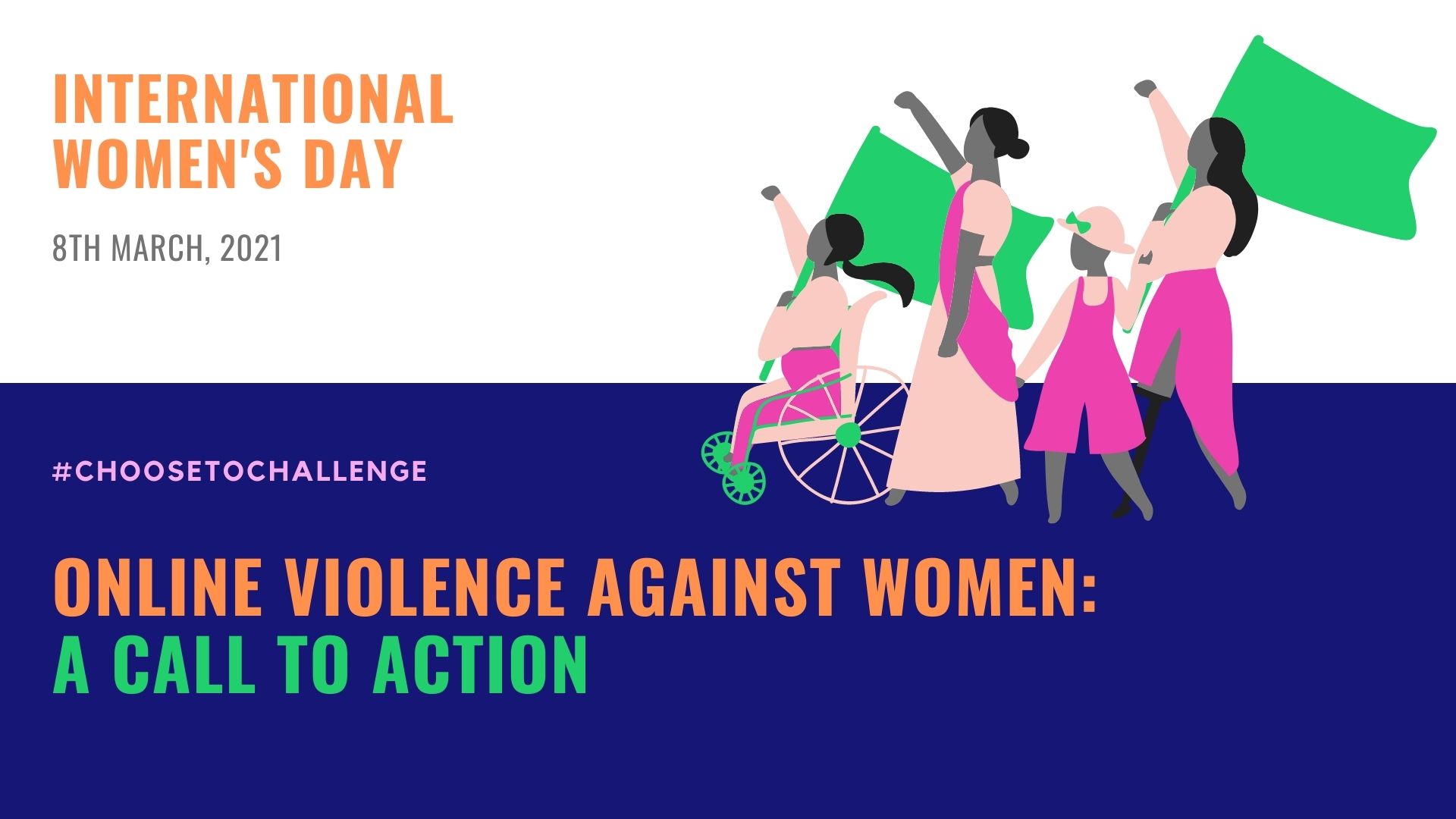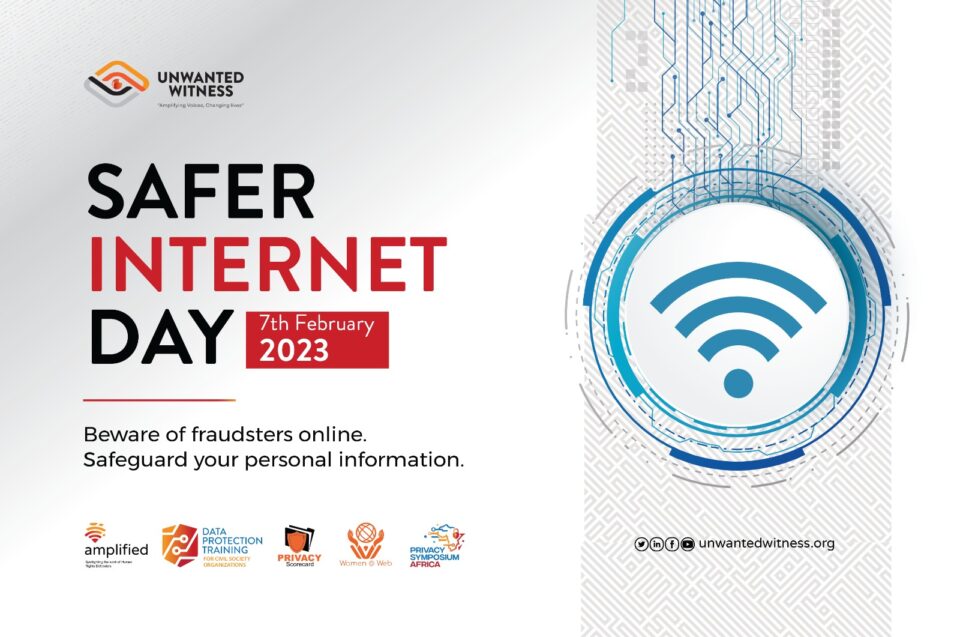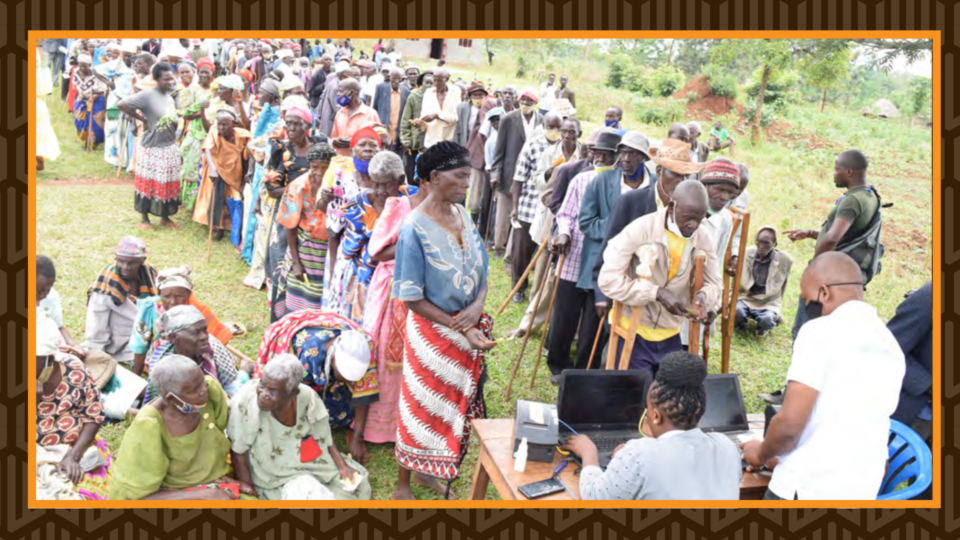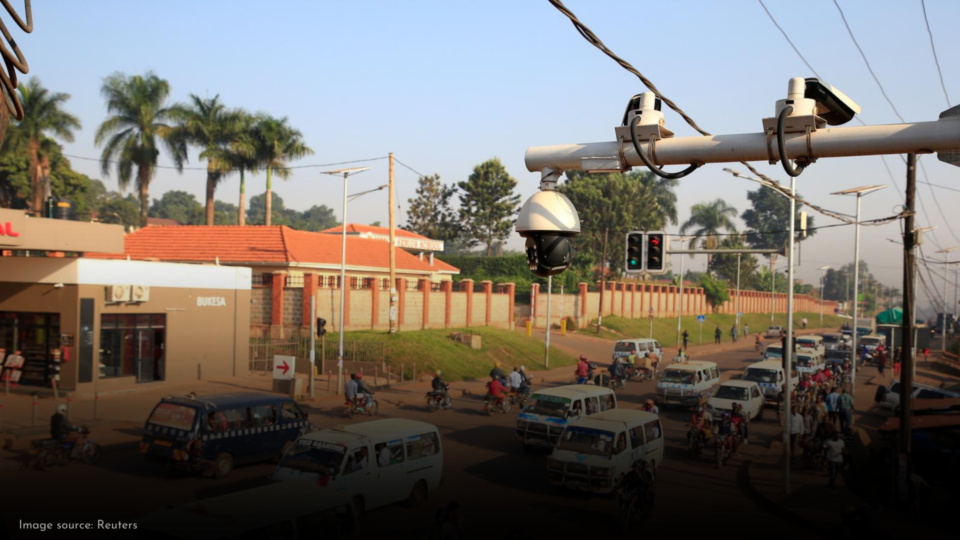Online Violence Against Women: A Call to Action

Online Violence Against Women: A Call to Action
Kampala, 8th/03/2021; Today we join the rest of the world to commemorate International Women’s Day 2021. The day aims at recognizing women for their achievements without regard to divisions, whether national, ethnic, linguistic, cultural, economic, or political, and is also a focal point in the movement for women’s rights.
Unwanted Witness is deeply concerned about online violence and discrimination against women which is on the increase and in pandemic proportions. Gender inequality underpins many problems which disproportionately affect women, such as domestic and sexual violence, lower pay, lack of access to education and information, lack of access to the internet, and inadequate healthcare.
The COVID-19 pandemic has brought about an influx of the number of women turn to the use of the internet, mobile phones, social media, and other digital platforms for sharing Information, these technologies have also become a weapon against them.
Studies have shown that online violence is just as damaging to women as physical violence, and it’s estimated that 73% of women have endured online violence and are 27 times more likely than men to be harassed online.
Online violence can also coincide, exacerbate or lead to physical violence against women. Online violence against women are acts ‘committed, abetted or aggravated’ in part or fully by the use of information and communication technology (ICT) acts of gender-based violence that are committed, abetted or aggravated, in part or fully, by the use of information and communication technologies.
“Despite the presence of laws and policies to protect victims and survivors in Uganda, existing laws on online violence against women, in several instances, are essentially no longer being enforced. The excessive time taken to file charges, delays in investigations, and the number of years that go by before a case is properly considered are some of the factors that make women survivors of technology-related violence desist from filing complaints”, Says Ms. Dorothy Mukasa the Executive Director of Unwanted Witness Uganda.
Under the Penal Code, Section 83 observes threatening violence as an offense and the perpetrator is liable to imprisonment for a period not exceeding four years. If the Penal Code is found to apply to online conduct, then threats, the non-consensual sharing of intimate images, or misogynistic speech against women, can be addressed under the Penal Code.
Under the Anti-Pornography Act Section 13(1), it is an act of offense to produce, traffic in, publish, broadcast, procure, import, sell or abet any form of pornography. This Act can be used in the redress of Non-consensual sharing of sexual media.
The Computer Misuse Act (2011) prohibits cyber harassment, which is defined as using a computer to make “any request, suggestion or proposal which is obscene, lewd, lascivious or indecent” or to threaten to injure someone.
“Internationally, Uganda has got zero tolerance for any violence against women both offline and online hence ratification of the Convention on the Elimination of Discrimination Against Women (CEDAW) and the African Charter on Human and Peoples’ Rights (ACHPR). Uganda is also a signatory to the African Union Solemn Declaration on Gender Equality in Africa. Despite Uganda having the above laws and being part of regional and international treaties that condemn violence against women, the government remains largely unprepared to handle online violence against women”, Says Ms. Dorothy Mukasa the Executive Director of Unwanted Witness Uganda.
Uganda Police officers are not familiar with the advancement in technology and this is further restricted by the understaffing in the police force. According to the Annual Crime Report 2019, Uganda Police Force has a challenge of not having enough staff to handle the cases.
The current strength of Criminal Investigations Directorate personnel is only 5,292 instead of the approved 19,843 leading to work overload and delays in investigations. The United Nations standard is 1:12 cases per detective per year. The current workload stands at 45 case files per detective.
Therefore as we commemorate International Women’s Day, we implore the Government in specific Police to prioritize the thorough and expeditious investigation on Online Violence related cases to curb the rather increasing cases of violence of women online.
About The Unwanted Witness
The Unwanted Witness, Uganda is a civil society organization (CSO) that was established to respond to the gap in effective communication using various online expression platforms




